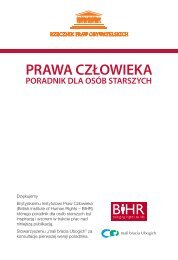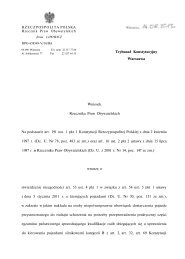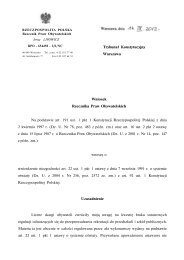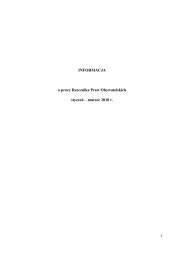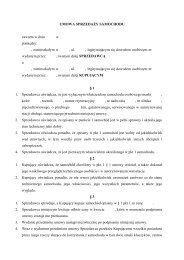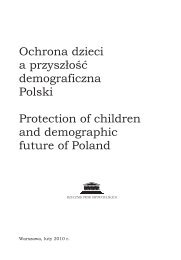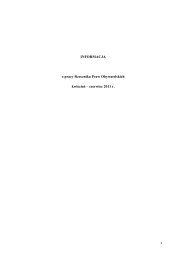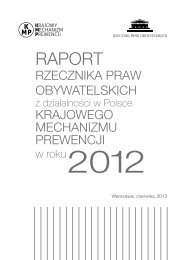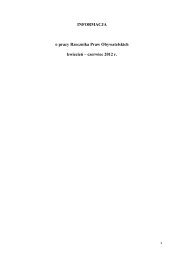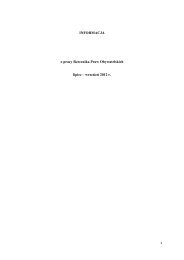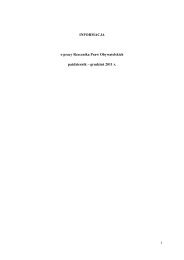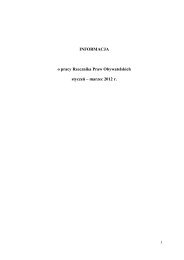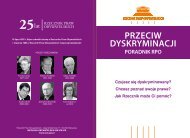Prawa człowieka w krajach Partnerstwa Wschodniego UE z ...
Prawa człowieka w krajach Partnerstwa Wschodniego UE z ...
Prawa człowieka w krajach Partnerstwa Wschodniego UE z ...
Create successful ePaper yourself
Turn your PDF publications into a flip-book with our unique Google optimized e-Paper software.
4. BELARUS<br />
a. Institutional and legislative framework<br />
With respect to constitutional and legislative framework, UNCT noted that Belarus<br />
adopted in 2009 a number of instruments regulating the legal situation of children, while<br />
CEDAW expressed concern that the Constitution did not contain explicit provisions<br />
prohibiting discrimination on the basis of sex and ensuring the equality of rights between men<br />
and women. The most important issue raised by the UN agendas with respect to the<br />
institutional framework in Belarus was the lack of a national human rights institution<br />
compliant with the Paris Principles and accredited by the International Coordinating<br />
Committee of National Institutions for the Promotion and Protection of Human Rights. The<br />
Special Rapporteur on human rights noted that the human rights protection mechanisms in<br />
Belarus were insufficient, one of the reasons being the lack of an ombudsman. UNCT and the<br />
United Nations Office on Drugs and Crime (UNODC) reported that Belarus created and<br />
developed specialized institutions for the protection of children’s rights and preventing human<br />
trafficking. Worth noticing are comments concerning cooperation between the UN organs and<br />
Belarus. The Special Rapporteur on human rights reported significant delays in the reporting<br />
obligations to the treaty bodies and hindered cooperation with the State authorities, including<br />
objections raised by the Belarus to the resolutions on the Commission on Human Rights. It<br />
was also noted that the Human Rights Committee reported violation of human rights in cases<br />
in which Belarus was a party. Since 2000, the Committee found violations in 17 cases, 12 of<br />
which concerned, among others, violation of the freedom of expression, assembly or religion,<br />
the right to participate in political life, or the right to be elected. The Committee noted that in<br />
each of the above cases, Belarus authorities challenged or refused to comment on the<br />
Committee’s findings.<br />
b. Equality and non-discrimination<br />
The most important comments of the UN organs concerning performance of the<br />
equality and non-discrimination obligations in Belarus were associated with the concern<br />
expressed by CEDAW and CERD about negative stereotypes relating to men’s and women’s<br />
roles in the society and xenophobic and racist incidents. The Committee of Experts of the<br />
International Labour Organisation (ILO) commented at length on the issue of sexual<br />
harassment of women in the workplace, the position of ethnical minorities in the labour<br />
market and employment discrimination.<br />
44



